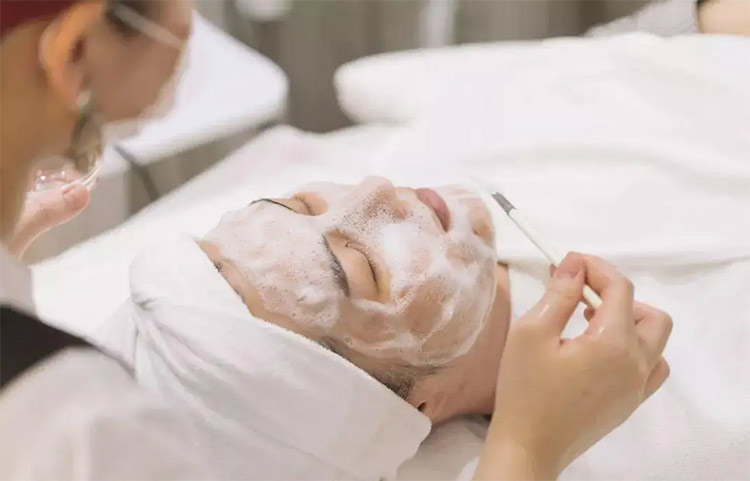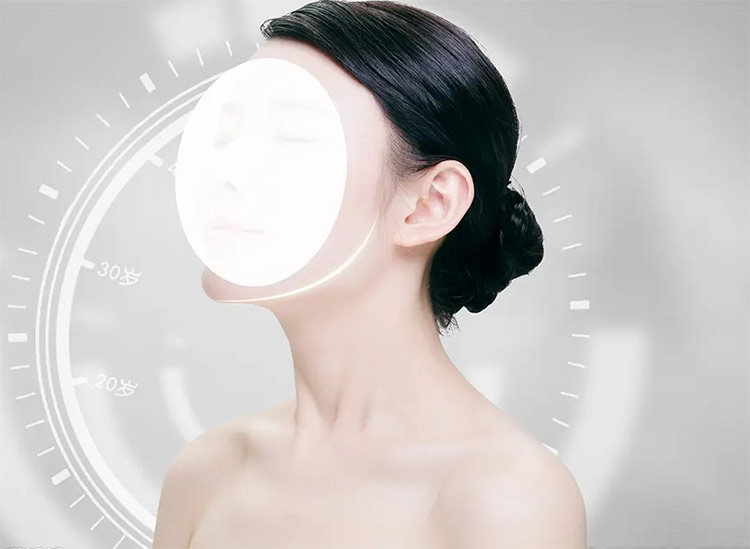Adding active skin care ingredients to your routine can deeply improve your complexion. Now let’s break down the most common active ingredients in skin care products to help you build the best regimen for your complexion.
Active ingredients commonly found in skin care products:
Benzoyl Peroxide: You may recognize this active skin care ingredient. For those who have treated acne, it is the main ingredient. It helps to unclog pores, kills acne and folliculitis-causing bacteria on the skin, kills bacteria by slowly releasing new ecological oxygen to oxidize the bacteria’s proteins, has antibacterial action against Propionibacterium acnes, a proven ingredient . Just make sure to apply it directly to the affected area, as a side effect it can dry out the surrounding skin.
Glycolic acid: is an alpha-hydroxy acid (also known as AHA) that exfoliates the skin. Glycolic acid helps break the bonds between skin cells, which increases effective exfoliation for smoother, more even skin. It is often used to help treat breakouts and even out skin tone and texture. Because it’s less prone to dry skin than other acne-type treatments, it’s often recommended by dermatologists. At the same time we think it has anti-aging properties as well. Studies have shown that using glycolic acid can slow the breakdown of collagen in the skin and even stimulate the production of new collagen for firmer skin. The hydroxyl group in glycolic acid has a strong water absorption capacity, and at the same time, the substance can promote the production of natural moisturizing factors after it penetrates into the dermis, so it can moisturize.

Hyaluronic Acid: If you are dealing with dry or dehydrated skin, hyaluronic acid is your best active ingredient of choice. Hyaluronic acid is a humectant, which means it helps absorb moisture, it enhances overall moisture, helps dry and plump skin, and helps improve the appearance of fine lines and wrinkles.
Niacinamide: Also known as a vitamin B3 derivative, is a multipurpose antioxidant. It works with the skin’s natural substances to help visibly reduce enlarged pores, tighten sagging pores, improve uneven skin tone, soften fine lines and wrinkles, reduce dullness, and strengthen fragile skin surfaces. Niacinamide also It reduces the impact of the external environment on our skin, as it improves your skin barrier (skin’s first line of defense), and it also plays a role in the skin repairing damage.
Salicylic acid: is a beta-hydroxy acid derived from willow bark that reduces acne and dissolves excess debris in pores, salicylic acid works by penetrating the lipid layer between skin cells and into pores to unclog them, Dissolves skin fragments, reduces skin inflammation and treats acne pimples and pustules. It also disrupts the connections between skin cells to increase exfoliation and promote cell turnover.
Retinol: Retinol is a vitamin A derivative that, according to research, has been shown to help fight aging. Retinol is an effective ingredient in skin care regimens for preventing the signs of aging and is backed by current science and research. Regular use of retinol has many benefits: reducing fine lines and wrinkles, stimulating collagen, more even and smooth skin tone, increasing moisture and preventing breakouts.
Vitamin C: Great for boosting your immune system when taken as a supplement, but did you know it can also improve your complexion when used topically? Vitamin C neutralizes free radicals caused by sun damage and air pollution (both of which speed up the breakdown of collagen). Collagen in the skin peaks when we are about 22 years old and decreases every ten years thereafter, so it is imperative that as much collagen is produced and prevented from breaking down as possible. It also inhibits the production of melanin in the skin, which helps lighten hyperpigmentation and brown spots, even out skin tone and enhance skin radiance.

Which skin care actives should you use?
Which active skin care ingredients you use depends entirely on your skin type and your choices. For people with acne, recommended active ingredients may include salicylic acid, retinoids, or benzoyl peroxide. For those who focus primarily on anti-aging skincare, it may specifically include vitamin C, retinoids, and sunscreen.
In general, science-based skincare experiences focus on the triple action of SPF, antioxidants, and retinol. These three ingredients will cover most of the basic solutions for skin problems to prevent and correct the most common skin signs of skin aging and photodamage, of course, if you have some specific problems that need to be addressed, it is best to seek a dermatologist , to better target treatments and avoid wasting time and money on the wrong skincare products.